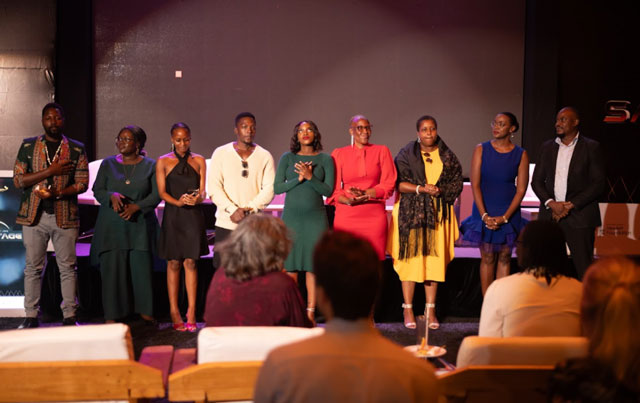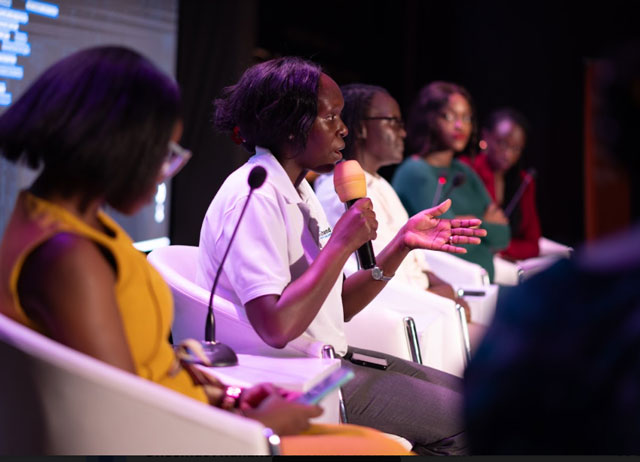
RAHU partners with the Netherlands Embassy to address SRHR challenges through ‘Sabotage’ screening
Kampala, Uganda | THE INDEPENDENT | A dialogue and screening of the movie Sabotage last week in Kampala highlighted the collaborative efforts of Reach A Hand Uganda (RAHU), The Netherlands Embassy and several partners in initiating crucial conversations aimed at mindset change and policy improvements for the benefit of young people.
The special screening of Sabotage aimed to discuss crucial Sexual and Reproductive Health and Rights (SRHR) challenges, particularly focusing on unsafe abortions and sexual violence, through a social-cultural lens.
“Partners and donors can utilize this movie as a powerful advocacy tool to drive conversations, mobilize resources, and enact policy reforms,” the Programs Manager at RAHU, Sheila Kasabiiti, emphasized.
The screening, attended by key stakeholders and decision-makers, showcased the impactful narratives sourced from real-life stories in Uganda.
The purpose of the screening and panel discussion that involved partners, Sautiplus Media Hub and Nabwiso Films, was to showcase the realities of SRHR challenges faced by young people in Uganda, spark meaningful discussions among stakeholders and collaborate on actionable solutions to address issues such as sexual violence and unsafe abortions.
“As a young woman in Uganda, ‘Sabotage’ resonates deeply with the realities many of us face. It courageously sheds light on the challenges of sexual violence and unsafe abortions, which are sadly all too common,” Karin Boven, the Ambassador of the Netherlands Embassy in Uganda said.
Among the distinguished panelists at the exclusive screeing were individuals deeply passionate about addressing SRHR challenges such as Daisy Kandole, from the SRHR alliance team and Uganda’s representative to the Netherlands Youth Advisory Council.
Sharifah Nakate, a cast member of “Sabotage,” reflected on her experience shooting the film, describing it as “emotionally intense and enlightening.” She hoped audiences would remove the urgency of addressing SRHR issues and the importance of consent and bodily autonomy.

Another cast member, Denis Kinani, discussed the sobering experience of portraying the role of a perpetrator in the film. He urged fellow men to challenge toxic masculinity and stand in solidarity with survivors of gender-based violence.
Judith Adokorach from the Netherlands Embassy emphasized the Netherlands’ strategic objective of supporting Uganda in achieving SDG 3 (Healthy lives and Wellbeing for all) and SDG 5 (Gender equality and empowerment of all women and girls) by ensuring everyone’s sexual and reproductive health rights are met. She noted that the movie highlights controversies, dilemmas, and uncertainties in the policy environment that sometimes hinder the provision of necessary services, such as safe and legal abortion.
She presented a scenario involving a 14-year-old girl who is pregnant due to defilement, illustrating the dilemmas faced by her and the various stakeholders involved in handling such cases. Many young women and girls in Uganda encounter difficulties due to conflicting views and opinions, underscoring the need for clear policy provisions and accountability in implementing enabling policies. This clarity is essential to help girls and women navigate the challenges they face in achieving the highest state of sexual and reproductive health.
At the event, Kemigisha Elizabeth from FIDA weighed in with legitimate expertise as she addressed the legal framework surrounding safe abortion, stressing the importance of clarity to ensure women’s rights and access to safe healthcare.
“To resolve these uncertainties, there’s a need for clear and accurate information dissemination, advocacy for legal reforms that prioritize women’s health and rights, and collaboration between stakeholders to address systemic barriers,” she said.
 The Independent Uganda: You get the Truth we Pay the Price
The Independent Uganda: You get the Truth we Pay the Price



